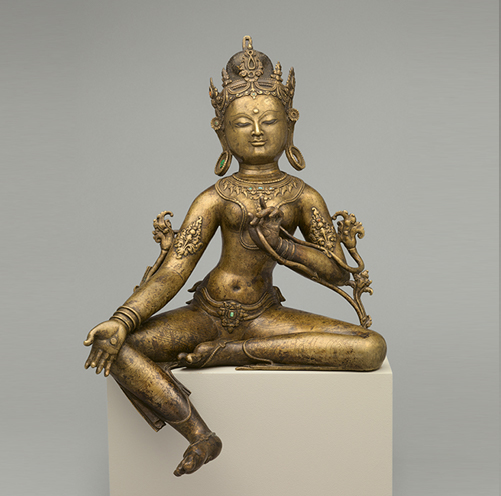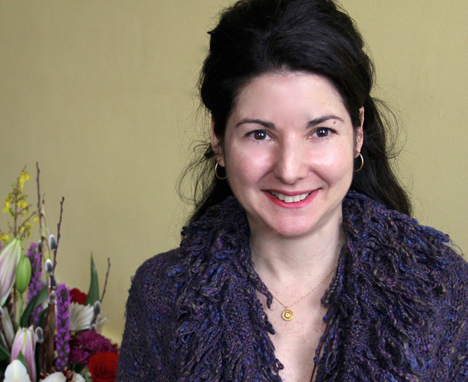
The Rubin Museum of Art presents a weekly meditation session led by a prominent meditation teacher from the New York area, with each session focusing on a specific work of art. This podcast is recorded in front of a live audience, and includes an opening talk, a 20-minute sitting session, and a closing discussion. The guided meditation begins at 15:00.
If you would like to attend Mindfulness Meditation sessions in person or learn more, please visit our website at RubinMuseum.org/meditation.
This program is supported with thanks to our presenting partners Sharon Salzberg, the Interdependence Project and Parabola Magazine.


Theme: Intention
Related Artwork

This Week’s Work of Art
Tara is the most prominent female deity of Northern Buddhism. She is the principal example of a female buddha, someone who actually lived and achieved enlightenment. Prior to her enlightenment in ages past, she promised that after she reached enlightenment she would always appear in female form for the benefit of all living beings. Her name means “star”; however, Buddhists prefer to use the term “saviouress.” Tara is both: If wandering travelers or merchants can find the North Star, they are saved from being lost. Venerated in all schools of Himalayan and Central Asian Buddhism, Tara is second in popularity only to the All-Seeing Lord (Avalokiteshvara), the patron deity of Tibet.
Tara, shown here, is a fully realized buddha who has vowed to take form as a bodhisattva in the body of a woman until all sentient beings are awakened. Her intention to remain a bodhisattva is also the intention to save others from the cycle of rebirth and to achieve enlightenment.
About the Speaker

Kimberly Brown is the executive director of The Interdependence Project and a graduate of its Meditation Teacher Training Program. She leads mindfulness and compassion classes, workshops, and retreats for groups and individuals in New York City. Kim studies American and Tibetan Buddhism and practices loving kindness meditation. Her teaching methods integrate depth psychology, compassion training, and traditional Buddhist techniques as a means to help everyone reconnect to their inherent clarity and openness.
